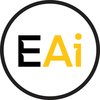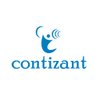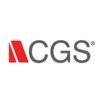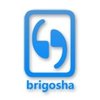Filter interviews by
Joy Infotech Consulting Consultant Interview Questions and Answers
Updated
31 Jan 2024
Joy Infotech Consulting Consultant Interview Experiences
1 interview found
Interview experience
Excellent
Difficulty level
Moderate
Process Duration
Less than 2 weeks
Result
I was interviewed in Dec 2023.
Round 1 - Technical
(1 Question)
- Q1. Basic of Frontend from HTML 5,CSS3 and JavaScript
Add your answer

Top trending discussions
View All

Salary Discussions, Hike & Promotions
1w
fathersahaab
·
works at
AmbitionBox

New Job, Higher Pay, Now I’m Feeling Awkward
I’ve been at my new job for about six months now, and everything’s been going great! I’m getting positive feedback from my manager, and I get along well with the team. The thing is, when I started, my salary offer ended up being much higher than the initial number discussed during my interview. I didn’t negotiate and just accepted the offer.
So, fast forward to happy hour with the team, and the topic of salary comes up. I, unfortunately, shared what I’m making, and let’s just say... it didn’t sit well with the others who have been on the team for years and make less than me. They weren’t mad at me, but now I’m feeling a bit uncomfortable and unsure how to handle this situation.
Has anyone had something like this happen? How did you deal with it? Let’s chat!
Got a question about Joy Infotech Consulting?
Ask anonymously on communities.




Interview questions from similar companies

Interview Preparation Tips
Round: Resume Shortlist
Experience: I started preparing my resume somewhere around August end. I spoke to a few seniors about it and read quite a few resumes, especially of those seniors who either had a profile similar to mine or had secured jobs in fields of my interest, eg. Consulting, finance, etc. I also attended the Resume Writing Workshop conducted by McKinsey and Co. on campus and cleared a few doubts there.
Tips: I would advise you guys to start preparing your resumes well in advance, it is not something to be kept for the last minute. Being the first form of acquaintance between you and a firm, it is a highly important document and the way you highlight your strong points and attributes can go a long way in shortlisting you from amongst the hundreds of resumes that they have to scan. Also, it is important that you be able to speak on any point in your resume in detail, hence you must be sure of what you are writing in it.
Round: Case Study Interview
Experience: The procedure of selection for Opera Solutions was a set of 4 interviews, each having a case study and some HR questions. The initial shortlist had around 22 candidates, after the first 2 interviews around 10 candidates were selected for the final rounds. Finally 3 candidates were made offers. There were no GDs, only case interviews. The first interview had a case involving a music company which scouts for amateur talent and launches them. They want to enter India and want you to analyse the market and suggest if its feasible or not. The interviewer gave a lot of data related to market share of pop music, bollywood, devotional music, etc and it suggested that the market share of the genre related to the company is very little. However I think what worked best was that I also pointed out certain solutions which could make it feasible, such as merging with another company in a genre where the given company has core competencies in. I think this was the high point of the interview which I atleast would like to believe compensated for a later interview that I did not do well in. Another interview had a case where a pharmaceutical company in the US wants to enter India. A set of constraints and data was given and I was asked to calculate if it should actually setup a manufacturing facility in India or manufacture in the US and transport to India. I did not do well in this one, I wasn’t being able to come up with a figure. Both the interviews had an HR component where I was asked about my strengths and weaknesses, about Mood Indigo and my academic record. I was asked to describe myself. I was also asked to talk about my co-intern’s project in ITC (she was also interviewing with Opera). In a subsequent interview after the shortlist, I was asked to estimate the market for Maruti cars, domestic air travel. They weren't expecting too much detail, the interviewer was more interested in the approach. point.
Tips: I attended most of the initial PPTs. One does get a good understanding of what a firm does and where exactly do you fit into it, you also understand what they are looking for and what is the extent of their operations. I must admit though that I found my interaction with seniors, especially those working in those firms was more informative and fruitful. They can give clarity in certain grey areas that companies might stay non-committal on.ending across links/documents would help us compile a single point resource) . I prepared for case studies from the material I took from seniors, most of which is available on the LAN. For case studies I prepared with a friend and sometimes in groups of 3. I think this method is better than individual preparation because the other person can point out where you are going wrong, you get a different perspective and at the same time you can prepare in a fashion where one interviews the other and vice versa, so you get slightly comfortable with how an actual interview might feel like. It is however important to ensure that the person you are preparing with is competent and complementary to your skill sets, so that you can improve upon aspects where you might be lacking in.
General Tips: Case studies and HR questions. One should be very comfortable with points mentioned in the resume and should be able to talk at length about any . I guess it'd just be shifting a little from being myself if you know what I mean. A lot of seniors would give you a lot of fundae, but at the end one must remember that unless one is comfortable with a certain way of speaking or certain method of solving cases, it wont look genuine. For example, one need not thrash out every single detail of a case before beginning to solve it, sometimes the interviewer might get impatient or might think you are trying to buy time to think by asking unnecessary details. So if you are the kind of a person who can intuitively draw good conclusions at the outset so as to decide which direction to proceed in and hence which questions to ask, you can surely go ahead and do that, you need not also ask questions that you know are not required. Case interviews are very feel-good interviews, even if you make a mistake you will be guided back on track by the interviewer, hence I personally would recommend that you stick more to your general approach to solving cases (if you know it is a good one and works of course) and not try to change too much just because a certain senior did it in a different way.
College Name: IIT BOMBAY
Experience: I started preparing my resume somewhere around August end. I spoke to a few seniors about it and read quite a few resumes, especially of those seniors who either had a profile similar to mine or had secured jobs in fields of my interest, eg. Consulting, finance, etc. I also attended the Resume Writing Workshop conducted by McKinsey and Co. on campus and cleared a few doubts there.
Tips: I would advise you guys to start preparing your resumes well in advance, it is not something to be kept for the last minute. Being the first form of acquaintance between you and a firm, it is a highly important document and the way you highlight your strong points and attributes can go a long way in shortlisting you from amongst the hundreds of resumes that they have to scan. Also, it is important that you be able to speak on any point in your resume in detail, hence you must be sure of what you are writing in it.
Round: Case Study Interview
Experience: The procedure of selection for Opera Solutions was a set of 4 interviews, each having a case study and some HR questions. The initial shortlist had around 22 candidates, after the first 2 interviews around 10 candidates were selected for the final rounds. Finally 3 candidates were made offers. There were no GDs, only case interviews. The first interview had a case involving a music company which scouts for amateur talent and launches them. They want to enter India and want you to analyse the market and suggest if its feasible or not. The interviewer gave a lot of data related to market share of pop music, bollywood, devotional music, etc and it suggested that the market share of the genre related to the company is very little. However I think what worked best was that I also pointed out certain solutions which could make it feasible, such as merging with another company in a genre where the given company has core competencies in. I think this was the high point of the interview which I atleast would like to believe compensated for a later interview that I did not do well in. Another interview had a case where a pharmaceutical company in the US wants to enter India. A set of constraints and data was given and I was asked to calculate if it should actually setup a manufacturing facility in India or manufacture in the US and transport to India. I did not do well in this one, I wasn’t being able to come up with a figure. Both the interviews had an HR component where I was asked about my strengths and weaknesses, about Mood Indigo and my academic record. I was asked to describe myself. I was also asked to talk about my co-intern’s project in ITC (she was also interviewing with Opera). In a subsequent interview after the shortlist, I was asked to estimate the market for Maruti cars, domestic air travel. They weren't expecting too much detail, the interviewer was more interested in the approach. point.
Tips: I attended most of the initial PPTs. One does get a good understanding of what a firm does and where exactly do you fit into it, you also understand what they are looking for and what is the extent of their operations. I must admit though that I found my interaction with seniors, especially those working in those firms was more informative and fruitful. They can give clarity in certain grey areas that companies might stay non-committal on.ending across links/documents would help us compile a single point resource) . I prepared for case studies from the material I took from seniors, most of which is available on the LAN. For case studies I prepared with a friend and sometimes in groups of 3. I think this method is better than individual preparation because the other person can point out where you are going wrong, you get a different perspective and at the same time you can prepare in a fashion where one interviews the other and vice versa, so you get slightly comfortable with how an actual interview might feel like. It is however important to ensure that the person you are preparing with is competent and complementary to your skill sets, so that you can improve upon aspects where you might be lacking in.
General Tips: Case studies and HR questions. One should be very comfortable with points mentioned in the resume and should be able to talk at length about any . I guess it'd just be shifting a little from being myself if you know what I mean. A lot of seniors would give you a lot of fundae, but at the end one must remember that unless one is comfortable with a certain way of speaking or certain method of solving cases, it wont look genuine. For example, one need not thrash out every single detail of a case before beginning to solve it, sometimes the interviewer might get impatient or might think you are trying to buy time to think by asking unnecessary details. So if you are the kind of a person who can intuitively draw good conclusions at the outset so as to decide which direction to proceed in and hence which questions to ask, you can surely go ahead and do that, you need not also ask questions that you know are not required. Case interviews are very feel-good interviews, even if you make a mistake you will be guided back on track by the interviewer, hence I personally would recommend that you stick more to your general approach to solving cases (if you know it is a good one and works of course) and not try to change too much just because a certain senior did it in a different way.
College Name: IIT BOMBAY

I applied via Recruitment Consulltant and was interviewed before Nov 2021. There were 3 interview rounds.
Round 1 - Resume Shortlist

Pro Tip by AmbitionBox:
Keep your resume crisp and to the point. A recruiter looks at your resume for an average of 6 seconds, make sure to leave the best impression.
View all tips
Round 2 - Aptitude Test
In the aptitude test they will give arthametic, reasoning
Round 3 - HR
(4 Questions)
- Q1. In third round operations manager will take for interview questions are asking like introduce yourself like that and asking about our family background and asking calculation part in mathematics.
- Q2. Introduce yourself? What is DCA?
- Q3. Nothing that's it they asked for HR round
- Q4. Nothing that's it they asked for HR round.
Add your answer

Add your answer

Add your answer

Add your answer

Interview Preparation Tips
Interview preparation tips for other job seekers - Whenever we will go for the interview we have to be confidentially don't be scared for that if your fresher means then only we will be like that even me to my first job I have done in hgs technologies only please don't be scared. All the best for your future.

Interview Preparation Tips
Round: Resume Shortlist
Experience: I started preparing my resume somewhere around August end. I spoke to a few seniors about it and read quite a few resumes, especially of those seniors who either had a profile similar to mine or had secured jobs in fields of my interest, eg. Consulting, finance, etc. I also attended the Resume Writing Workshop conducted by McKinsey and Co. on campus and cleared a few doubts there.
Tips: I would advise you guys to start preparing your resumes well in advance, it is not something to be kept for the last minute. Being the first form of acquaintance between you and a firm, it is a highly important document and the way you highlight your strong points and attributes can go a long way in shortlisting you from amongst the hundreds of resumes that they have to scan. Also, it is important that you be able to speak on any point in your resume in detail, hence you must be sure of what you are writing in it.
Round: Case Study Interview
Experience: The procedure of selection for Opera Solutions was a set of 4 interviews, each having a case study and some HR questions. The initial shortlist had around 22 candidates, after the first 2 interviews around 10 candidates were selected for the final rounds. Finally 3 candidates were made offers. There were no GDs, only case interviews. The first interview had a case involving a music company which scouts for amateur talent and launches them. They want to enter India and want you to analyse the market and suggest if its feasible or not. The interviewer gave a lot of data related to market share of pop music, bollywood, devotional music, etc and it suggested that the market share of the genre related to the company is very little. However I think what worked best was that I also pointed out certain solutions which could make it feasible, such as merging with another company in a genre where the given company has core competencies in. I think this was the high point of the interview which I atleast would like to believe compensated for a later interview that I did not do well in. Another interview had a case where a pharmaceutical company in the US wants to enter India. A set of constraints and data was given and I was asked to calculate if it should actually setup a manufacturing facility in India or manufacture in the US and transport to India. I did not do well in this one, I wasn’t being able to come up with a figure. Both the interviews had an HR component where I was asked about my strengths and weaknesses, about Mood Indigo and my academic record. I was asked to describe myself. I was also asked to talk about my co-intern’s project in ITC (she was also interviewing with Opera). In a subsequent interview after the shortlist, I was asked to estimate the market for Maruti cars, domestic air travel. They weren't expecting too much detail, the interviewer was more interested in the approach. point.
Tips: I attended most of the initial PPTs. One does get a good understanding of what a firm does and where exactly do you fit into it, you also understand what they are looking for and what is the extent of their operations. I must admit though that I found my interaction with seniors, especially those working in those firms was more informative and fruitful. They can give clarity in certain grey areas that companies might stay non-committal on.ending across links/documents would help us compile a single point resource) . I prepared for case studies from the material I took from seniors, most of which is available on the LAN. For case studies I prepared with a friend and sometimes in groups of 3. I think this method is better than individual preparation because the other person can point out where you are going wrong, you get a different perspective and at the same time you can prepare in a fashion where one interviews the other and vice versa, so you get slightly comfortable with how an actual interview might feel like. It is however important to ensure that the person you are preparing with is competent and complementary to your skill sets, so that you can improve upon aspects where you might be lacking in.
General Tips: Case studies and HR questions. One should be very comfortable with points mentioned in the resume and should be able to talk at length about any . I guess it'd just be shifting a little from being myself if you know what I mean. A lot of seniors would give you a lot of fundae, but at the end one must remember that unless one is comfortable with a certain way of speaking or certain method of solving cases, it wont look genuine. For example, one need not thrash out every single detail of a case before beginning to solve it, sometimes the interviewer might get impatient or might think you are trying to buy time to think by asking unnecessary details. So if you are the kind of a person who can intuitively draw good conclusions at the outset so as to decide which direction to proceed in and hence which questions to ask, you can surely go ahead and do that, you need not also ask questions that you know are not required. Case interviews are very feel-good interviews, even if you make a mistake you will be guided back on track by the interviewer, hence I personally would recommend that you stick more to your general approach to solving cases (if you know it is a good one and works of course) and not try to change too much just because a certain senior did it in a different way.
College Name: IIT BOMBAY
Experience: I started preparing my resume somewhere around August end. I spoke to a few seniors about it and read quite a few resumes, especially of those seniors who either had a profile similar to mine or had secured jobs in fields of my interest, eg. Consulting, finance, etc. I also attended the Resume Writing Workshop conducted by McKinsey and Co. on campus and cleared a few doubts there.
Tips: I would advise you guys to start preparing your resumes well in advance, it is not something to be kept for the last minute. Being the first form of acquaintance between you and a firm, it is a highly important document and the way you highlight your strong points and attributes can go a long way in shortlisting you from amongst the hundreds of resumes that they have to scan. Also, it is important that you be able to speak on any point in your resume in detail, hence you must be sure of what you are writing in it.
Round: Case Study Interview
Experience: The procedure of selection for Opera Solutions was a set of 4 interviews, each having a case study and some HR questions. The initial shortlist had around 22 candidates, after the first 2 interviews around 10 candidates were selected for the final rounds. Finally 3 candidates were made offers. There were no GDs, only case interviews. The first interview had a case involving a music company which scouts for amateur talent and launches them. They want to enter India and want you to analyse the market and suggest if its feasible or not. The interviewer gave a lot of data related to market share of pop music, bollywood, devotional music, etc and it suggested that the market share of the genre related to the company is very little. However I think what worked best was that I also pointed out certain solutions which could make it feasible, such as merging with another company in a genre where the given company has core competencies in. I think this was the high point of the interview which I atleast would like to believe compensated for a later interview that I did not do well in. Another interview had a case where a pharmaceutical company in the US wants to enter India. A set of constraints and data was given and I was asked to calculate if it should actually setup a manufacturing facility in India or manufacture in the US and transport to India. I did not do well in this one, I wasn’t being able to come up with a figure. Both the interviews had an HR component where I was asked about my strengths and weaknesses, about Mood Indigo and my academic record. I was asked to describe myself. I was also asked to talk about my co-intern’s project in ITC (she was also interviewing with Opera). In a subsequent interview after the shortlist, I was asked to estimate the market for Maruti cars, domestic air travel. They weren't expecting too much detail, the interviewer was more interested in the approach. point.
Tips: I attended most of the initial PPTs. One does get a good understanding of what a firm does and where exactly do you fit into it, you also understand what they are looking for and what is the extent of their operations. I must admit though that I found my interaction with seniors, especially those working in those firms was more informative and fruitful. They can give clarity in certain grey areas that companies might stay non-committal on.ending across links/documents would help us compile a single point resource) . I prepared for case studies from the material I took from seniors, most of which is available on the LAN. For case studies I prepared with a friend and sometimes in groups of 3. I think this method is better than individual preparation because the other person can point out where you are going wrong, you get a different perspective and at the same time you can prepare in a fashion where one interviews the other and vice versa, so you get slightly comfortable with how an actual interview might feel like. It is however important to ensure that the person you are preparing with is competent and complementary to your skill sets, so that you can improve upon aspects where you might be lacking in.
General Tips: Case studies and HR questions. One should be very comfortable with points mentioned in the resume and should be able to talk at length about any . I guess it'd just be shifting a little from being myself if you know what I mean. A lot of seniors would give you a lot of fundae, but at the end one must remember that unless one is comfortable with a certain way of speaking or certain method of solving cases, it wont look genuine. For example, one need not thrash out every single detail of a case before beginning to solve it, sometimes the interviewer might get impatient or might think you are trying to buy time to think by asking unnecessary details. So if you are the kind of a person who can intuitively draw good conclusions at the outset so as to decide which direction to proceed in and hence which questions to ask, you can surely go ahead and do that, you need not also ask questions that you know are not required. Case interviews are very feel-good interviews, even if you make a mistake you will be guided back on track by the interviewer, hence I personally would recommend that you stick more to your general approach to solving cases (if you know it is a good one and works of course) and not try to change too much just because a certain senior did it in a different way.
College Name: IIT BOMBAY
Joy Infotech Consulting Interview FAQs
How many rounds are there in Joy Infotech Consulting Consultant interview?
Joy Infotech Consulting interview process usually has 1 rounds. The most common rounds in the Joy Infotech Consulting interview process are Technical.
Tell us how to improve this page.
Interview Questions for Popular Designations
- Associate Consultant Interview Questions
- Senior Consultant Interview Questions
- Senior Associate Consultant Interview Questions
- Lead Consultant Interview Questions
- Technical Consultant Interview Questions
- SAP Abap Consultant Interview Questions
- AST Consultant Interview Questions
- SAP Fico Consultant Interview Questions
- Show more
Interview Questions from Similar Companies
Joy Infotech Consulting Consultant Reviews and Ratings
based on 1 review
Rating in categories
|
Senior Software Engineer
7
salaries
| ₹8 L/yr - ₹18 L/yr |
|
Software Engineer
6
salaries
| ₹6 L/yr - ₹11.5 L/yr |
|
Information Technology Recruiter
4
salaries
| ₹1.2 L/yr - ₹3.2 L/yr |
|
Consultant
3
salaries
| ₹11 L/yr - ₹12 L/yr |
|
System Administrator
3
salaries
| ₹2 L/yr - ₹5 L/yr |
Explore more salaries

Compare Joy Infotech Consulting with

Exl India
Compare

Primus Global Technologies
Compare

TriGeo Technologies
Compare

GrapplTech
Compare
Popular Calculators
Did you find this page helpful?
Yes No
- Home >
- Interviews >
- Joy Infotech Consulting Interview Questions >
- Joy Infotech Consulting Consultant Interview Questions
Share an Interview










